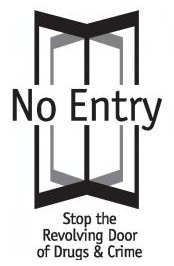
The Center for Health and Justice (CHJ) at Treatment Alternatives for Safe Communities (TASC) promotes a public policy strategy of No Entry, designed to reverse the flow of drug-involved individuals going into and through the criminal justice system. No Entry involves structured, clinical interventions at every phase of justice involvement to address offender drug use and related criminal behavior, promoting public safety and ensuring fiscal responsibility.
In furtherance of this aim, CHJ has published a national survey of more than 100 criminal justice diversion programs and initiatives, focusing on their strategies and lessons learned for reducing recidivism, improving health interventions, and achieving public cost savings.
The core principles of No Entry are:
- Public policies must recognize addiction as a brain disease
- Public policies must acknowledge the link between drug use and criminal behavior.
- Public policies must reverse the devastating impact of current laws, strategies, and practices that disproportionately harm minority communities.
- Public policies must bring sentencing statutes in line with an equitable dispensation of justice.
- Public policies must provide taxpayers with a return on their investment in public safety and public health.
- Public policies must recognize voter support for treatment alternatives to incarceration.
Population of focus: Peopled involved with criminal justice diversion programs
Links to resource:
- Full report — No Entry: A National Survey of Criminal Justice Diversion Programs and Initiatives (pdf)
- Executive summary (pdf)
- Links to report on the CHJ website
Date: 2013
Organization: The Center for Health and Justice at Treatment Alternatives for Safe Communities
